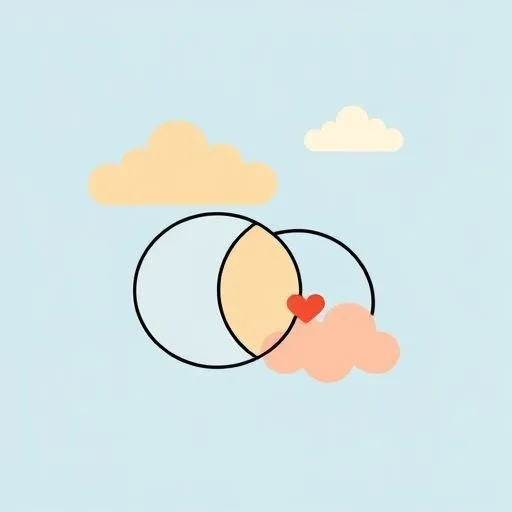
Remember that moment your little one suddenly refused their favorite snack? Or when bedtime turned into a battle with a child who just yesterday fell asleep without a peep? Change is constant in parenting. But what we’ve all noticed moms do so beautifully is this: they don’t fight the current. They adjust their stance softly and steadily. Let’s talk about how we can all learn to flow with these shifts without losing our footing.
Parenting’s ‘Mise en Place’: Ready for Anything, Without Rigidity

Chefs talk a lot about ‘mise en place’—everything in its place. But it’s not about rigid rules. It’s about having ingredients prepped so you can move fluidly when the heat’s on.
Parenting works the same way. It’s not perfect schedules we need, but mental readiness: ‘We’ll try this bedtime story, but if it doesn’t stick, we’ve got a backup hug ready.’ That’s where the real magic happens.
Knowing diapers, snacks, and patience are all within reach—not because we planned every second, but because the system bends when needed.
Think about the toddler rejecting dinner you spent an hour cooking. The ‘mise en place’ mom doesn’t panic. She’s got a scrambled egg in her back pocket—literally or figuratively. Because she prepared the meal and her mindset: ‘What’s Plan B if this doesn’t fly?’
That calm pivot teaches kids resilience too. They see, ‘Okay, mom has a plan B, so it’s safe to try new things.’ It’s never about perfection—it’s about presence.
How many times have you watched a mom turn spilled milk into shared giggles? ‘Well, we’ve got wipes handy—let’s clean it together!’ That’s the spirit.
The Magic Shift: ‘We’ Instead of ‘You’

Ever notice how one little word changes everything? When a child resists shoes, ‘You need to hurry up’ creates pressure. But ‘We’re running late—can you help me find your shoes?’ invites teamwork.
Moms get this instinctively. They don’t frame change as battles but as shared adventures.
We’ve all seen that park scene. Preschooler frozen at the slide’s top, scared. Mom doesn’t push or cajole. She sits beside him and says, ‘We’ve got all the time in the world, sweetie.’
That shift—from ‘you’ to ‘we’—melts the tension. And what happens? He slides down. It wasn’t bravery; it was feeling safe in the ‘we’.
The secret sauce? Adapting isn’t done to your child. It’s done with them.
Like turning forgotten toys into teamwork: ‘We forgot your bear? Let’s remember it together tomorrow.’ Suddenly, chaos becomes connection.
That ‘we’ language? It’s the quiet bridge between frustration and ‘I’ve got you.’
When Plans Shatter, What Really Holds

Let’s be honest: parenting plans collapse. All. The. Time. Baby spits up on your clean shirt minutes before naptime? School mornings suddenly feel like wrestling matches?
But here’s what no one tells you—the magic lives in the wreckage. Moms let go of ‘shoulds’ and tune into what’s truly here.
That refused sandwich isn’t about hunger. It’s about asserting independence. Bedtime tears? Often loneliness, not tiredness.
What we observe is this: moms pause. Instead of ‘Stop crying,’ they say, ‘You’re hurting because you want to play.’
That tiny shift—from fixing to feeling—changes everything. Kids learn their emotions are safe with you.
That’s how chaos becomes connection.
Remember the messy moment when frustration bubbled up? Swap ‘you’ for ‘we.’ ‘We’re both tired—let’s take five deep breaths.’ It softens the ground beneath your feet.
Because adapting isn’t about seamless transitions. It’s about standing together when the path gets rocky. That’s where resilience grows roots.
The Courage to Step Back, Not Forward

Sometimes adaptation means holding still instead of swooping in. When your baby crawls toward a sharp corner, the instinct screams ‘Grab them!’ But what we witness in moms is different: they hover close enough to catch while letting exploration happen.
It’s not neglect—it’s trust. Trust that bumps are lessons, not disasters.
That same quiet courage shows at school drop-off. Mom feels every urge to linger, but she forces a soft smile: ‘I’ll be right here.’ Why? Because she’s noticed something powerful: when she projects calm, the child relaxes.
Her anxiety would only leak through; her strength? That’s what kids soak up.
This stepping back isn’t easy. It’s the quietest bravery. But it gifts kids the ultimate security: ‘My world adjusts, and so can I.’
It doesn’t shield them from change—it arms them to navigate it. Think about those moments when you held your breath watching them try something new.
That’s you bending with the wind. And in that bend? You’re teaching them life’s most crucial lesson: flexibility isn’t weakness. It’s the deep-rooted strength that carries them far beyond today. That bend-and-stretch adaptability? That’s what carries our kids—and us—through all of life’s beautiful, messy changes.
Source: OpenAI for-profit restructuring given go-ahead by Microsoft in new non-binding deal, Techradar, 2025/09/12 14:29:00
